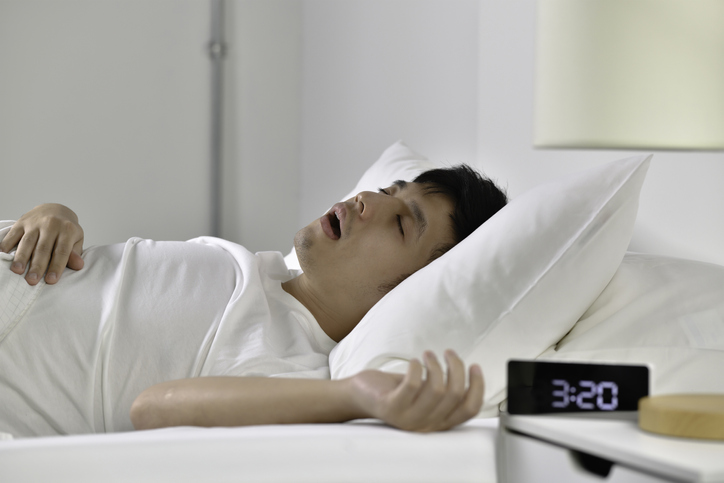Approximately 40% of cancer patients treated with anticancer drugs are at risk of sleep apnea → heart failure.
Entered 2024.02.12 20:10 Entered 2024.02.12 20:10 Modified 2024.02.12 22:19 Views 23
Approximately 40% of patients treated with anticancer drugs exhibit sleep apnea. You should be concerned about your risk of heart failure. [사진=게티이미지뱅크]Research results have shown that sleep apnea occurs not only in patients with general heart disease, but also in cancer patients who have received chemotherapy. This has been shown to increase the risk of heart failure.
A research team from the American College of Cardiology found that about 40% of cancer patients treated with anticancer drugs showed sleep apnea.
The research team evaluated the prevalence of sleep apnea in 296 general heart disease patients and 218 cardio-oncology patients (patients after anticancer drug treatment). The research team investigated and analyzed the actual situation using a sleep apnea questionnaire. Research results show that sleep apnea occurs in approximately 54% of general heart disease patients and approximately 39% of cardio-oncology patients.
Cardio-oncology is a field in which cardiology and oncology experts collaborate to diagnose and treat three types of cardiomyopathy (dilated, hypertrophic, and restrictive) caused by anticancer drugs. Dilated cardiomyopathy is a disorder in the expansion and contraction of the ventricle, resulting in poor pumping function, causing heart failure and arrhythmia.
Dr. Minnie K. Das, chief of cardio-oncology at Baptist Health Hospital in Kentucky and first author of the study, said, “Patients who have received chemotherapy are at increased risk of developing congestive heart failure if they develop sleep apnea. “Special caution is needed,” he said. Sleep apnea should be paid attention to as a risk factor for heart failure in chemotherapy patients.
There are two types of sleep apnea: obstructive sleep apnea (blockage of the airway in the throat while sleeping) and central apnea (absence of the body’s response to breathing). This study is about obstructive sleep apnea. The research team used a specific questionnaire (STOP-BANG questionnaire) consisting of eight questions to evaluate sleep apnea, including snoring, fatigue, observed apnea, increased blood pressure, body mass index (BMI), age, neck, and gender. Scores are based on answers ranging from 0 to 8 points. If the score is 3 or higher, the risk (sensitivity) for moderate and severe obstructive sleep apnea is high.
According to previous research results, 48-52% of general heart failure patients show sleep apnea. This is closely related to mortality due to cardiovascular disease. Cardiomyopathy can be predicted early. This is through left ventricular ejection fraction (a measure used to determine how well the heart pumps blood) and full-length left ventricular strain (a measure of how much the heart’s cells shrink in size to create the force to pump blood).
Obstructive sleep apnea related to anticancer treatment is also related to congestive heart failure and left ventricular dysfunction. Cardio-oncology patients are particularly at high risk for congestive heart failure due to cancer treatment.
“Echocardiography has developed into a useful tool for early detection and treatment of cardiomyopathy in patients with sleep apnea and cardio-oncology patients,” said Dr. Das. “We conducted the study because we wanted to identify markers that would identify patients at higher risk when starting cancer treatment,” he said.
Heart failure occurs when the heart is too weak to pump properly, or when the heart is too stiff to fill with blood properly. The team emphasized that sleep apnea assessment should be part of routine risk assessment for patients undergoing cancer treatment.
“Copyright ⓒ ‘Honest Knowledge for Health’ Comedy.com ( / Unauthorized reproduction and redistribution, AI learning and use prohibited”
2024-02-12 11:11:48
#cancer #patient #snores #breath.. #Risk #heart #failure #due

